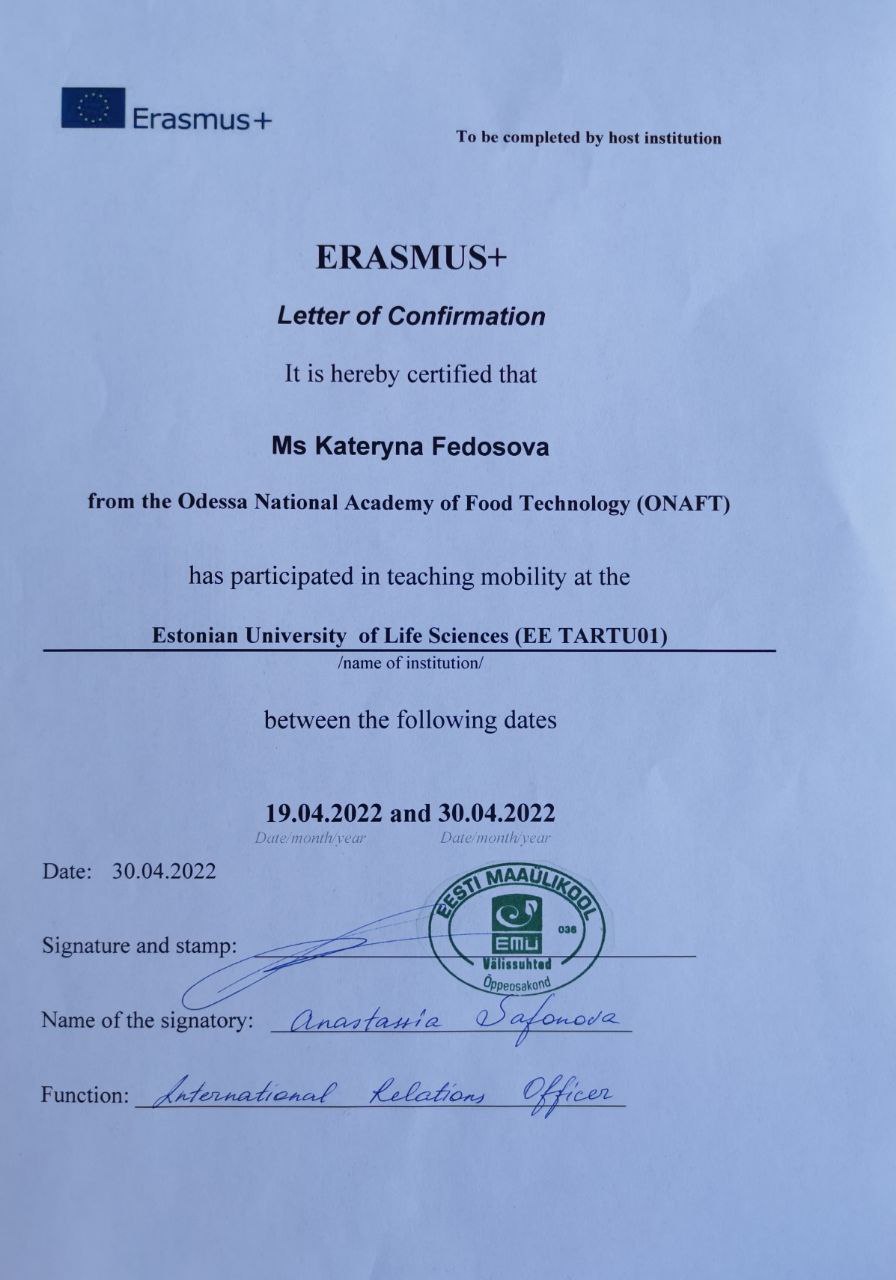The Department of International Grants and Academic Mobility of Odessa National Technological University under the leadership of the Vice-Rector for Research and Pedagogy and International Relations Professor Mardar MR conducts extensive and daily work to attract students and teachers of ONTU to receive mobility grants under Erasmus + projects. . This time I was lucky too. I have just returned from Estonia, where I gave an eight-hour English lecture course on “Prospects for work and cooperation between meat companies and the restaurant business” at the Estonian University of Natural Sciences for 2 weeks as part of the Erasmus + international academic mobility program. of Life Sciences) in Tartu. The lectures, which aroused great interest, were attended by students, teachers and business representatives.
All lectures at the University of Tartu are held in a hybrid format – those interested can be present in the classroom and watch lectures online. To do this, the audience is equipped with modern equipment that allows live broadcast from connected cameras and microphones. Lectures are usually stored for two weeks on a university server and are publicly available.
An interesting difference of the University of Tartu is that the Department and the Faculty of Food Technology combine different areas of the food industry from dairy and meat products to the production of beer and confectionery. Despite the fact that education for citizens of the European Union in Estonia is free, only 25-30 students study in each course of the specialty “Food Technology”, and 10-15 students in the master’s program.
In my free time between lectures at the University of Tartu, at the invitation of the hotel and restaurant business of Estonia and neighboring countries, I visited many different universities and vocational schools in the hotel and restaurant business in Estonia, Finland and Latvia, such as the University of Tartu College. Pärnu, Estonian University of Applied Sciences in Tallinn, Culinary, Tourism and Business College in Helsinki, Finland, The Hague-Helia University of Applied Sciences in Helsinki, Turiba University of Riga in Latvia. In some of them I gave open lectures on Ukrainian cuisine and the work of volunteer restaurants.
The most amazing thing is that in Estonia for more than ten years all documentation is kept exclusively in electronic form. Each of the teachers and students has an electronic signature that is used for any documentation. Course projects, diplomas and abstracts are not printed, but submitted only in electronic form.
It should be noted that Estonia is very supportive of Ukraine in such a difficult time – every house, bus and door of all institutions are decorated with Ukrainian flags. More than 30,000 refugees from Ukraine have arrived in the country to receive housing and assistance. Some schools have Ukrainian classes and study groups.
In general, I can conclude that my visit to Estonia was very fruitful – I managed to get the consent of the head of the Department of Food Technology Dr. Ivy Joud to participate in the organizing committee of our international competition Black Sea Science, learn from the Soviet country, which became a member of the European Union. and teachers of Estonian educational institutions with Ukrainian cuisine, to tell about the war and the courage of our people.
Kateryna Fedosova, Associate Professor of Hotel and Restaurant Business

